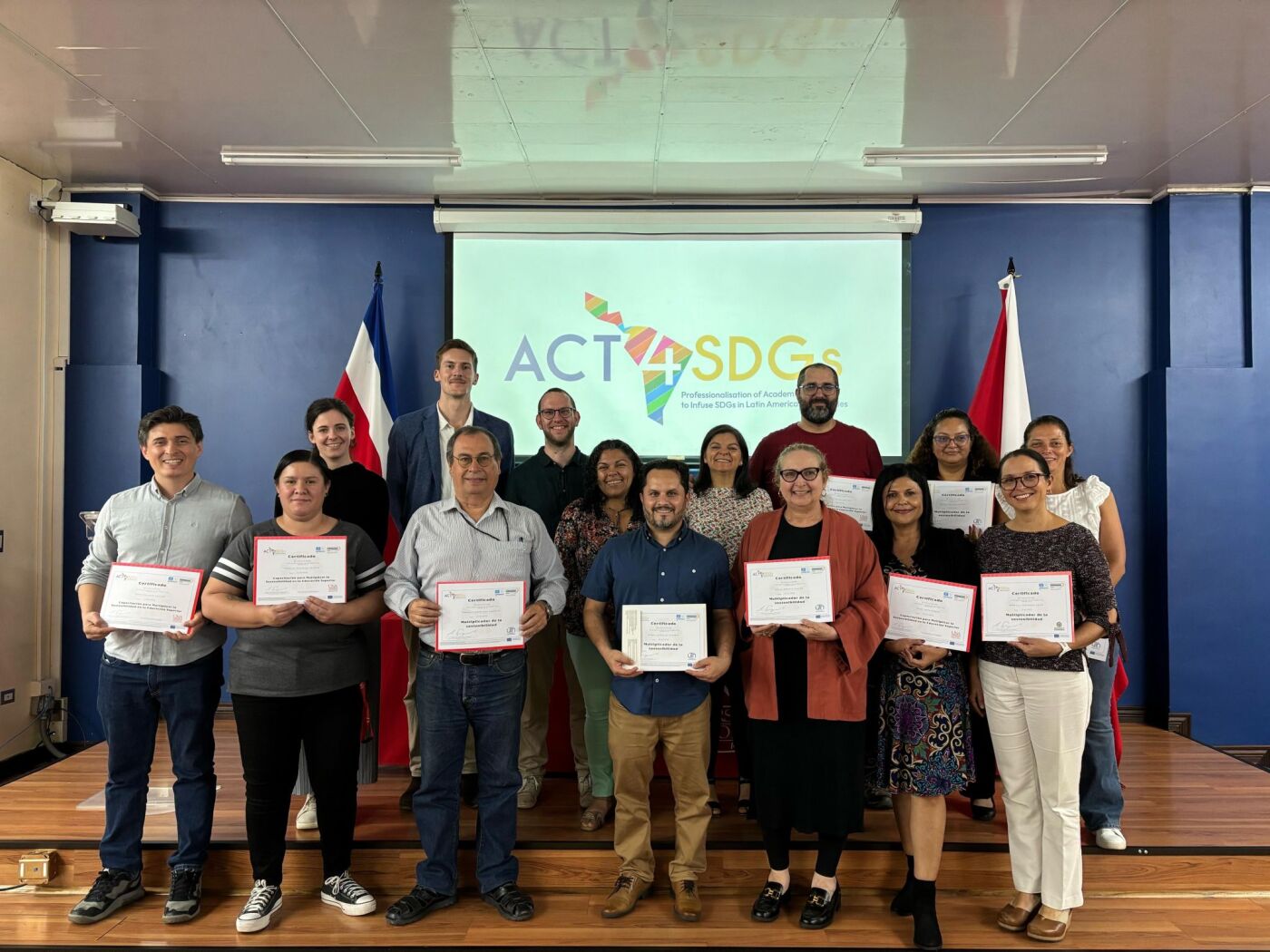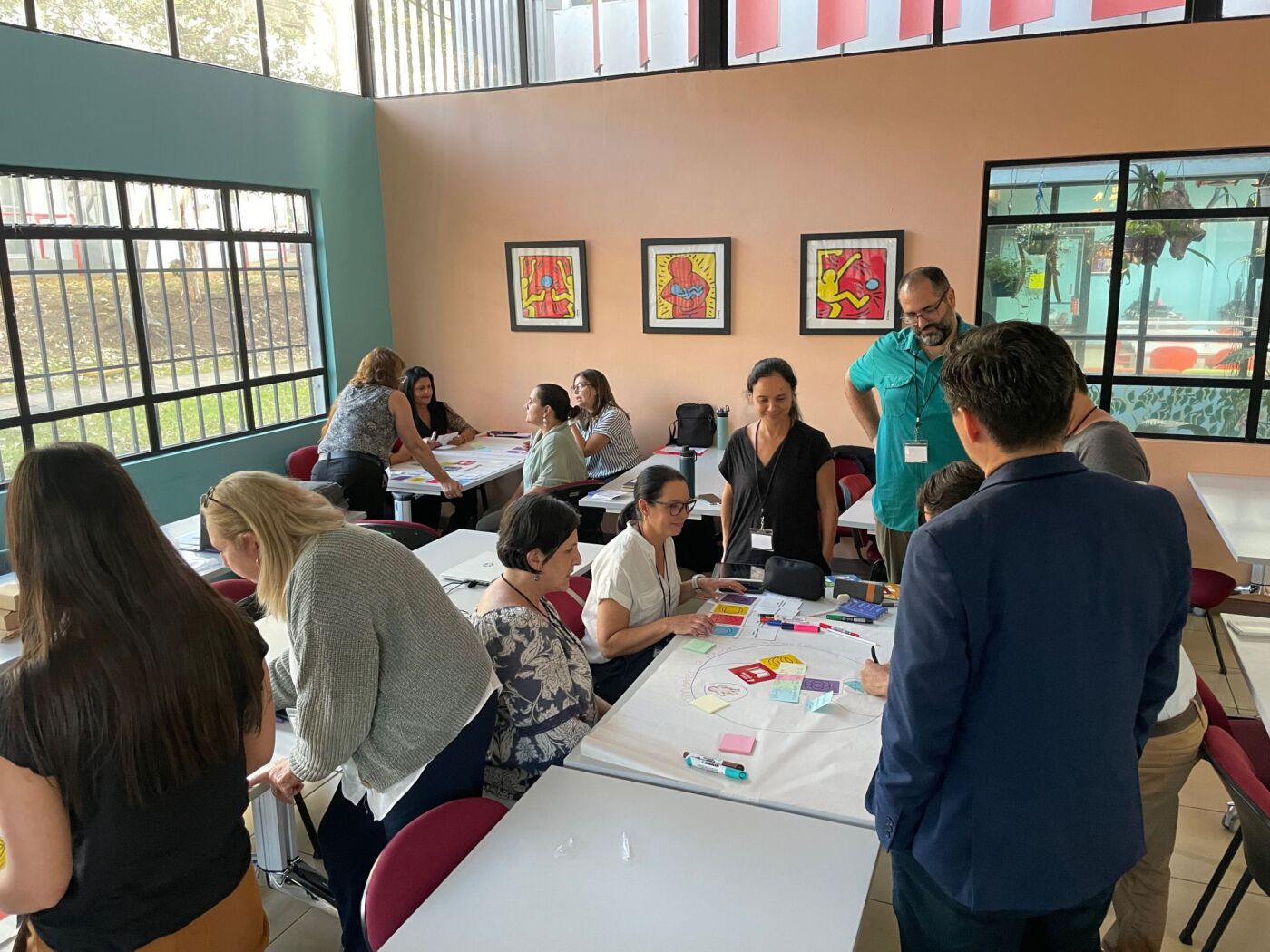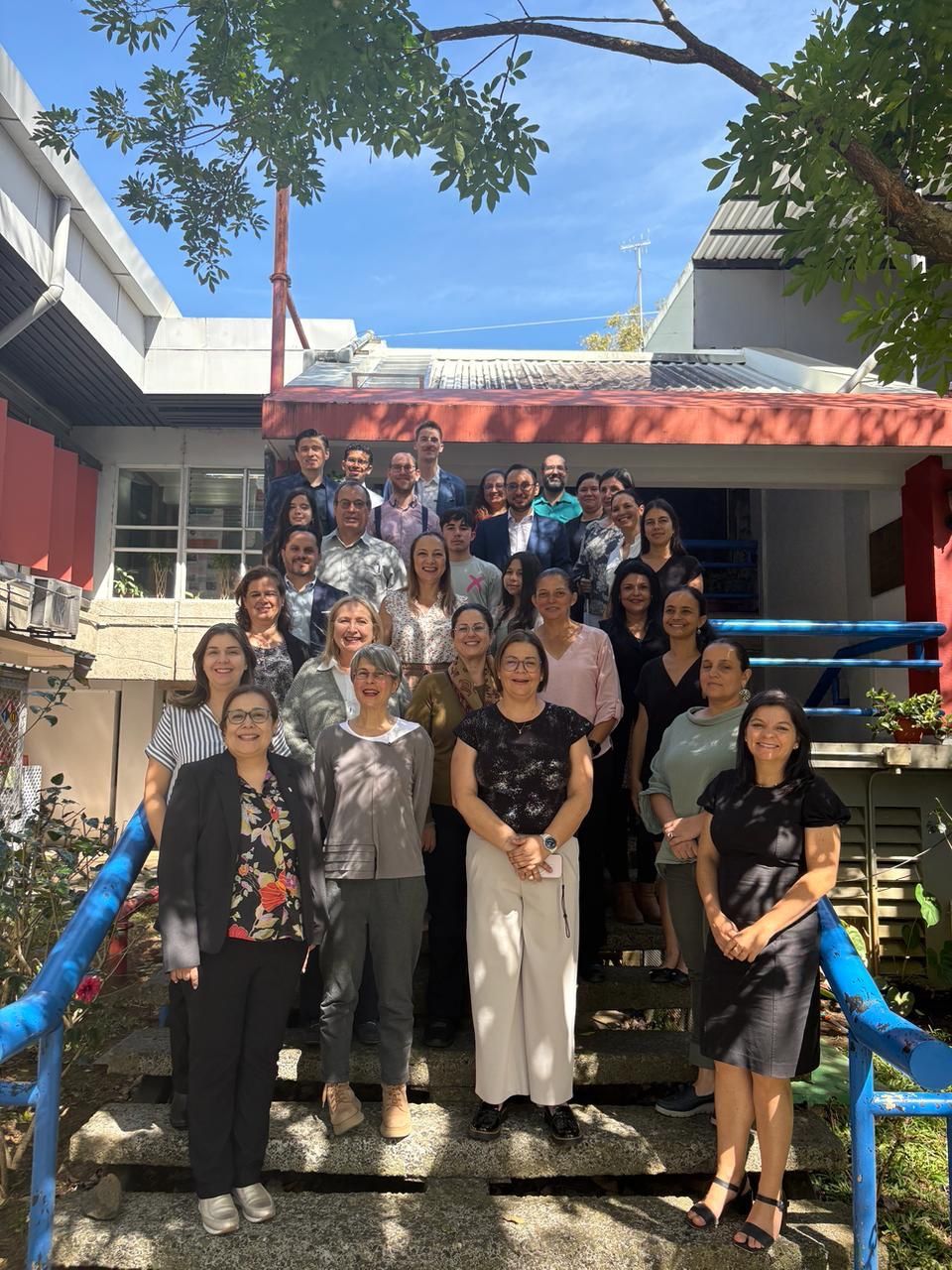First ACT4SDGs Workshop in Costa Rica
From February 2 to February 14, Florian Kohler and Lasse Grimmer from the Institute of Geography and Geocommunication, along with Corinna Wagner, a Digital Education for Sustainable Development master’s program student at Heidelberg University of Education, coordinated and participated in the inaugural ACT4SDGs workshop.
The ACT4SDGs project, led by Prof. Dr. Alexander Siegmund, focuses on integrating the Sustainable Development Goals (SDGs) into academic teaching and curricula across multiple universities in Latin America.
The first workshop was hosted by the Universidad Nacional in Costa Rica and included participants from all Costa Rican partners in the ACT4SDGs project: Universidad de Costa Rica, Universidad Técnica Nacional, and Universidad Nacional.
Over 15 participants took part in the two-week workshop, strengthening their knowledge of the SDGs, Education for Sustainable Development (ESD), the Earth Charter Framework, the Whole-Institution Approach, and multi-, intra-, and transdisciplinary teaching and research practices. During the second week, participants had the opportunity to develop their own projects on integrating SDGs into their academic teaching, which they presented on the final day of the workshop. Additionally, the group visited all three campuses to observe how each institution already incorporates sustainability principles into their processes and how these principles are embedded in teaching and research practices.
The Heidelberg team also visited the Earth Charter institute at the University for Peace, which acts as the local coordinator of the ACT4SDGs project. Through the UNITWIN Network on ESD and Social Transformation, the UNESCO Chair on Observation and Education of World Heritage and Biosphere Reserve is closely connected to the work of the Earth Charter Institute.
At the end of the workshop, each participant received a signed certificate from Prof. Dr. Siegmund and began preparing for the next phase of the project: training the next cohort within their respective universities.



-------------------------------------
Vom 2. bis 14. Februar koordinierten und nahmen Florian Kohler und Lasse Grimmer vom Institut für Geographie und Geokommunikation sowie Corinna Wagner, Masterstudentin im Programm "Digitale Bildung für nachhaltige Entwicklung" an der Pädagogischen Hochschule Heidelberg, am ersten ACT4SDGs-Workshop teil.
Das von Prof. Dr. Alexander Siegmund geleitete ACT4SDGs-Projekt konzentriert sich darauf, die Ziele für nachhaltige Entwicklung (SDGs) in die Lehre und Curricula mehrerer Universitäten in Lateinamerika zu integrieren.
Der erste Workshop wurde von der Universidad Nacional in Costa Rica ausgerichtet und umfasste Teilnehmer aller costa-ricanischen Partner des ACT4SDGs-Projekts: Universidad de Costa Rica, Universidad Técnica Nacional und Universidad Nacional.
Mehr als 15 Teilnehmer:innen nahmen an dem zweiwöchigen Workshop teil, um ihr Wissen über die SDGs, Bildung für nachhaltige Entwicklung (BNE), den Rahmen der Earth Charta, den "Whole-Institution"-Ansatz sowie multi-, intra- und transdisziplinäre Lehr- und Forschungspraxen zu vertiefen. In der zweiten Woche hatten die Teilnehmer:innen die Möglichkeit, eigene Projekte zur Integration der SDGs in ihre akademische Lehre zu entwickeln und diese am letzten Tag des Workshops zu präsentieren. Darüber hinaus besuchte die Gruppe alle drei Universitätsstandorte, um zu beobachten, wie jede Institution bereits Nachhaltigkeitsprinzipien in ihre Prozesse integriert und wie diese in Lehr- und Forschungspraxen eingebettet sind.
Das Team aus Heidelberg besuchte außerdem das Earth Charter-Team an der University for Peace, das als lokaler Koordinator des ACT4SDGs-Projekts fungiert. Über das UNITWIN-Netzwerk zu BNE und sozialer Transformation ist der UNESCO-Lehrstuhl für Erdbeobachtung und Geokommunikation von Welterbestätten und Biosphärenreservaten eng mit der Arbeit des Earth Charter Centres verbunden.
Am Ende des Workshops erhielt jeder Teilnehmer ein unterschriebenes Zertifikat von Prof. Dr. Alexander Siegmund und begann mit den Vorbereitungen für die nächste Phase des Projekts: die Schulung der nächsten Kohorte an den jeweiligen Universitäten.





